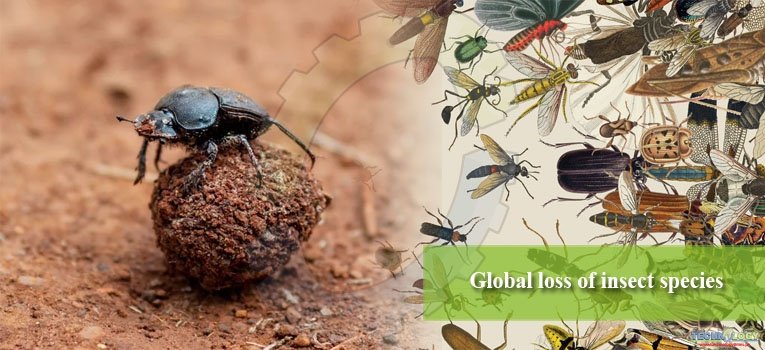A recent international article by leading global scientists and researchers published in the journal Conservation Biology has warned us about the emergent danger of unprecedented loss of numerous insect species from the planet.

The comprehensive review did extensive studies to indicate that insects across the globe are showing alarming signs of decline; and that if they continue like this we may have to confront a situation where within the next 100 years we may see a planet free of insects!
For any ordinary individual this may be baffling; as insect pests causing serious harms to human, domestic and wild animals as well as to our precious forests and crops continue to raise high with significant cost to our health, agriculture and forestry industries.
Then why are we alarmed by the loss of the insects that are virtually so numerous and represent one of the largest group of animals co-sharing this planet as their home?
Insects represent one of the largest groups of most fascinating and superbly adopted animals of this planet. This unique group of animals have undergone extensive modifications in their morphology, anatomy, behavior and adaptations over several million years of evolution before successfully establishing themselves as one of the most successful, biodiverse and dominant species of this planet.
They occupy almost every known ecological habitat with the exception of the polar ecosystems and restricted marine ecosystems. They are arboreal, terrestrial, subterranean and aquatic in their habits and are found in every forest types that we could imagine or think off.
Scientists believe that we have been able to locate, identify and discover only a handful of species of insects; while a significant majority of them could still be unknown to the science. Thus we are possibly facing an extinction apocalypse of insects faster even before they are discovered, identified, described or documented by science around the globe.
Most of us picture in our minds horrifying images of ants, flies, mosquitoes, cockroaches, hornets when we think about insects. Our perception regarding insects is quite negative. But if we take a look beyond our disgust about insects and their harmful aspect, we will appreciate the monumental ecological services they perform to maintain the ecological homeostasis of our planet.
A vast majority of our food and industrial crops as well as a significant majority of forest species are dependent on cross pollination for genetic exchanges among male and female plants for their reproduction and survival.
It is amazing to note that a vast majority of insect species in addition to honeybees and native bees take part in this process of cross pollination that is vital for our food security as well as stability and proper functioning of the natural ecosystems like moths, butterflies, wasps, ants, flies, beetles to mention only a handful. Without these farmer friendly and environment friendly insects our chances of survival as species on this planet is indeed quite bleak.
Furthermore, insects are also important components of our natural ecosystems in breaking down complex molecules into their simplest elemental forms, thus insects play an important role in the process of maintaining the stability of the natural biogeochemical cycles operating in the nature.
From an industrial perspective, insects play a significant economic role in many developed, under developed and developing countries in the form of apiculture, sericulture and lacculture. Even in high technology based glass house or green house production systems insects are an outstanding resource for using them in cross pollination of crops as well as in biocontrol.
Loss of beneficial farmer friendly insects is an issue directly related to food security since this can impact global crop production significantly across various latitudes around the globe. Furthermore, the role of insects as degrades in natural ecosystem in also monumental! Conversion of dead and decaying organic materials in their simple elemental form is an essential ecological that insects play.
Insects are an important source of food for a wide range of other animals; and therefore constitute an integral part of numerous complex food chains and food webs. Loss of insects means loss of food sources for a wide range of other animals. If all these natural ecological processes are blocked and/or disrupted the natural ecosystems will be in serious jeopardy.
Pollination services is an important aspect of model crop production systems around the globe and without insects this entire systems runs the risk of being completely falling apart threatening the future existence of forest, biodiversity, forests and humans alike.
One must be curious to know why this rapid decline of insects is being observed around the globe. One of the most important reasons behind the insect apocalypse is over application of various synthetic chemical toxic pesticides and insecticides in our modern industrial agriculture.
Often farmers and crop producers are using these chemicals beyond the application rate set by manufacturing companies and bringing serious consequences on natural ecosystems.
The residue chemical is being transported to adjacent water bodies through rain and irrigation as well as percolating downwards polluting ground water table. Residual chemicals are interfering with the natural soil chemistry and killing both soil microbes and insects impacting soil ecology negatively.
Anthropogenic environmental pollution, climate change, rapid destruction of forests and natural ecosystems are further accelerating the rate of global loss of insect species. Unless we are responsible enough to learn to live sustainably and care for other species sharing this planet with us, we may be pushing ourselves towards extinction through our irresponsible actions.